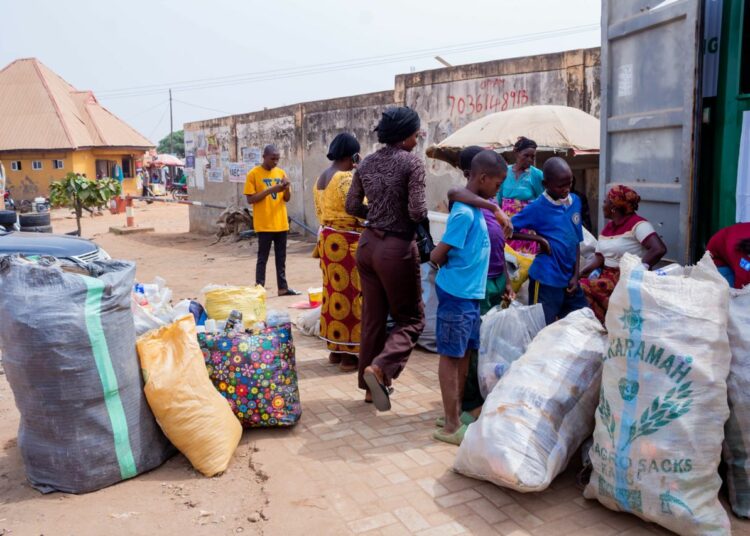With Nigeria estimated to contribute over 2.5 million tonnes of mismanaged plastic waste annually, ranking it the 9th worst polluter of marine environments globally, organisations are stepping up to tackle the nation‘s plastic plague – starting from Abuja, the nation’s capital.
The Initiative for the Advancement of Waste Management in Africa (WASTE Africa) recently launched a plastic waste control and recycling programme in Aleyita community on the outskirts of Abuja.
At the event, the programme director of WASTE Africa, Juliet Odhikori, said the programme is to ensure plastic waste doesn‘t leak into marine environments.
The stakeholders’ engagement with the theme: “Reducing Marine Plastic Pollution through Recycling” is supported by the Global Environment Facility Small Grants Programme (GEF-SGP), United Nations Development Programme (UNDP).
Odhikori said the women will be taught how to segregate waste and at same time exchange waste for value.
The chief environmental engineer of Abuja Environmental Protection Board (AEPB) Sherifat Lawal commended WASTE Africa for the initiative.
One of the beneficiaries, Saratu Jeremiah Zakwoyi, said the initiative is already providing employment for residents of the community, while ensuring cleanliness.
Jaiz Bank was on hand to open an account for the women.
The project seeks to reduce plastic pollution in water bodies around Abuja, which is undergoing a fast pace of urbanization and is struggling to adequately meet its waste management needs.
“According to National Geographic, eight million tonnes of plastic enter the ocean each year and is estimated to triple to 23-27 million tonnes by 2040.
“With 2.5 million tonnes of plastic waste annually, Nigeria is the 9th largest contributor of marine litter in the world and among the top African countries contributing to marine debris and mismanaged plastic flowing into the Gulf of Guinea.”





